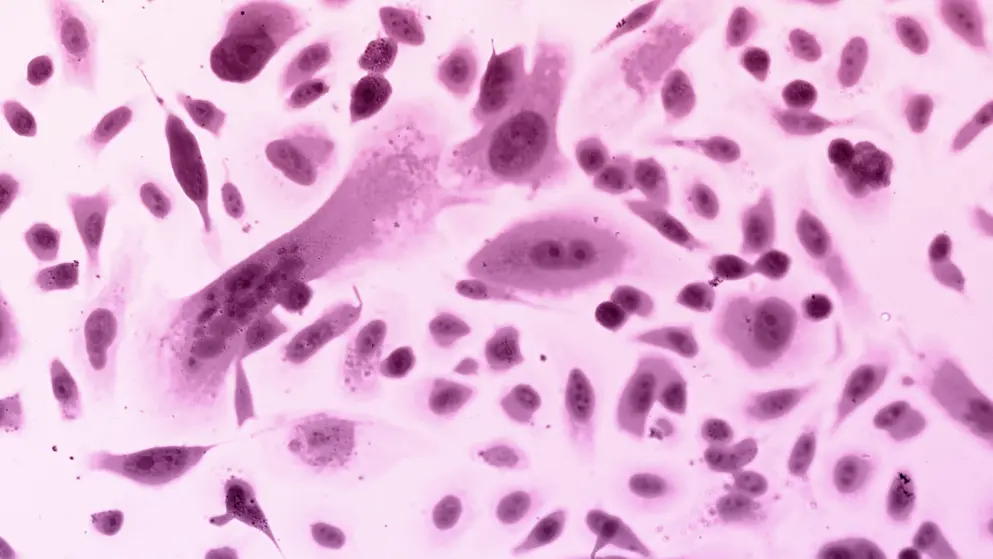
Updated data demonstrating improved outcomes from the use of niraparib + abiraterone acetate + prednisone as a first-line therapy in patients with BRCA-positive metastatic castration-resistant prostate cancer.
The Janssen Pharmaceutical Companies of Johnson & Johnson announced updated results from the Phase III MAGNITUDE study evaluating the investigational use of niraparib, a highly selective poly (ADP-ribose) polymerase (PARP) inhibitor, in combination with abiraterone acetate plus prednisone (AAP) in patients with metastatic castration-resistant prostate cancer (mCRPC) with or without specific homologous recombination repair (HRR) gene alterations, including BRCA mutations
Results were featured in a Rapid Abstract Session (Abstract #170) at the American Society of Clinical Oncology’s Genitourinary (ASCO GU) Cancers Symposium, taking place February 16-18.
In the second interim analysis (IA2) of the MAGNITUDE study, the treatment combination of niraparib and AAP, in comparison to placebo at 26.8 months of median follow-up, demonstrated a statistically significant prolongation in time to symptomatic progression (TSP) and continued consistent improvement of time-to-initiation of cytotoxic chemotherapy (TCC) in the HRR-positive population, and a strong improvement in TSP for the BRCA subgroup of the HRR-positive population. Updated review of the primary endpoints in radiographic progression free survival (rPFS) were consistent with the initial results, which showed a statistically significant benefit in both the HRR-positive population and BRCA subgroup.
Additionally, a trend toward improvement in overall survival (OS) was observed in the BRCA subgroup. No new safety signals were identified. The most common adverse events for niraparib and AAP versus placebo and AAP, regardless of causality, were anemia (50.0 percent vs. 22.7 percent, respectively), hypertension (33.0 percent vs. 22.3 percent) and constipation (33.0 percent vs. 15.6 percent). Patients without HRR gene alterations had no improvement in outcomes from the use of niraparib in combination with AAP.
"Patients with HRR-positive mCRPC, especially those with BRCA mutations, are more likely to experience poor outcomes. Although additional follow-up for overall survival continues, it is encouraging to see a trend toward improvement in overall survival among patients with BRCA-positive mCRPC who received niraparib and AAP as compared to placebo and AAP,” said Kim Chi, M.D., Medical Oncologist at BC Cancer - Vancouver and principal investigator of the MAGNITUDE study. “Taken together, these data continue to support the potential use of niraparib in combination with AAP in patients with mCRPC and BRCA mutations.”
Notably, in the BRCA subgroup (8.1 months additional follow-up at IA2 ( second interim analysis)), rPFS by central review demonstrated a consistent and clinically meaningful treatment effect favoring niraparib and AAP, with a median rPFS of 19.5 months at IA2 compared with 10.9 months for placebo and AAP (hazard ratio [HR], 0.55 [95 percent confidence interval [CI], 0.39-0.78]). For patients with BRCA-positive mCRPC, preplanned sensitivity analysis evaluating rPFS by investigator review also showed benefit for niraparib and AAP (HR, 0.46 [95 percent CI, 0.32-0.67]). Further, results of the IA2 indicate that patients with BRCA mutations treated with niraparib and AAP experienced a trend towards delayed time to worst pain intensity (HR, 0.70 [95 percent CI, 0.44-1.12]) and pain interference (HR, 0.67 [95 percent CI, 0.40-1.12]) compared with placebo and AAP.
"We have confirmed the unmet need in patients with BRCA-mutated mCRPC and have shown that niraparib and abiraterone acetate plus prednisone overcomes the poor prognostic outcome in these patients. These MAGNITUDE results underscore the importance of identifying patients with BRCA mutations to better inform treatment strategies and ensure the right patients receive add-on therapy with a PARP inhibitor,” said Mary Guckert, RN, MSN, Vice President, Development Leader, Prostate Cancer, Janssen Research & Development, LLC. “As the treatment landscape for prostate cancer continues to evolve, we are committed to evaluating innovative targeted therapies to help improve outcomes for patients with HRR-positive prostate cancer.”

